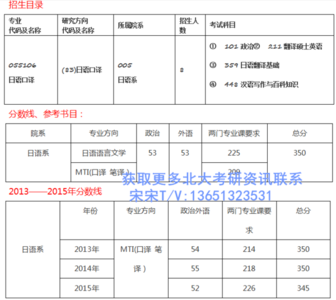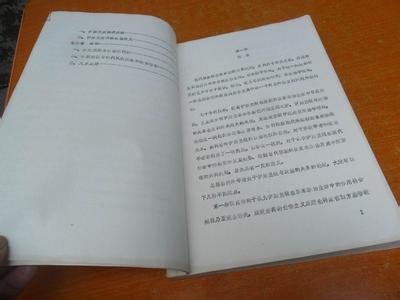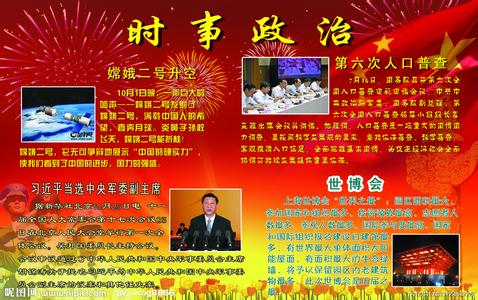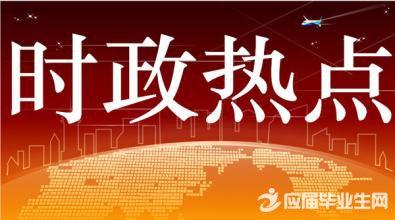实现更长时期、更高水平、更好质量的发展
——在2011年夏季达沃斯论坛上的讲话
中华人民共和国国务院总理温家宝
Promote Sound, Sustainable and Quality Development
Speech by Wen Jiabao
Premier of the State Council of the People's Republic of China
At the World Economic Forum Annual Meeting of New Champions 2011
2011年9月14日
Dalian, 14 September 2011
尊敬的克劳斯?施瓦布主席,
女士们,先生们:
Professor Klaus Schwab, Executive Chairman of the World Economic Forum,
Ladies and Gentleman,
首先,我对第五届夏季达沃斯论坛的召开表示衷心祝贺!对各位嘉宾的到来表示热烈欢迎!夏季达沃斯论坛已经走过了五个年头,五年的论坛形成了一个宗旨,这就是面向世界、面向未来、面向创新、面向青年。会议安排了多种形式的讨论,开得生动活泼、充满朝气,特别在金融危机的困难时期,给世界传递了希望的声音,带来了信心和勇气。本次论坛以“关注增长质量,掌控经济格局”为主题,反映了大家对推动经济强劲、可持续、平衡增长的共识与期待。我祝愿本次论坛获得圆满成功!
I wish to extend warm congratulations on the opening of the fifth Annual Meeting of the New Champions, or the Summer Davos, and a sincere welcome to you all. The Summer Davos has undergone five years of growth and established its principle of being oriented to the whole world, to the future, to innovation and to youths. Participants have had lively and dynamic exchanges at various forms of discussions, delivering to the world messages of hope, confidence, and courage, particularly at the difficult times of the global financial crisis. The theme of this year's meeting -- Mastering Quality Growth -- represents people's shared desire for robust, sustainable and balanced economic growth, and I wish the meeting a great success.
国际金融危机爆发至今已经三年,国际组织、各国政府、企业界和专家学者都在深刻反思,探究危机产生的原因,寻求世界经济和各国经济未来发展之路。对中国经济发展的成就,有喝彩的,也有怀疑的;对中国经济的未来,有看好的,也有唱衰的。对此,我们的头脑是清醒的,胸中是有数的,信心是坚定的。
Three years have passed since the outbreak of the international financial crisis. International organizations, governments, the business communities and the academia are all taking a hard look at the root causes of the crisis and exploring ways to sustain the growth of both the global economy and national economies. With regard to China's economic development, some people have hailed its achievements, while some others have expressed doubt. Some are optimistic about China's economic future, while some others say that China is in trouble. But we in China remain clear-headed and are firm in our confidence.
新世纪头十年,是世界政治经济格局大调整、大变革的十年,是中国工业化、城镇化快速发展的十年,也是我们全面推进改革开放和现代化建设取得辉煌成就的十年。
The first decade of this century has seen major changes in the global political and economic landscape. It has also seen rapid industrialization and urbanization in China. Great progress has been made in China's comprehensive reform, opening-up and modernization endeavor during this decade.
这十年,中国经济年均增长10.5%,国内生产总值由世界第六位上升到第二位,对外贸易总额由第七位上升到第二位;产业结构优化升级,农业基础不断加强,中西部地区发展加快,各具特色的区域发展格局初步形成;各项社会事业蓬勃发展,城乡居民收入大幅提高。中国经济实力、综合国力、人民生活水平迈上新台阶,国家面貌发生了翻天覆地的变化。
Over the last ten years, China's economy has been growing by 10.5 percent annually. Its GDP and trade volume respectively rose from the sixth and seventh place to the second place in the world. China's industrial structure is being upgraded; the foundation of its agriculture has grown stronger; development in the central and western provinces has picked up speed; and a mode of regional development with each region tapping its distinctive strength has taken shape. Social services are thriving; and urban and rural income has risen substantially. China has taken on a completely new look as its total economic output and overall national strength significantly increased and people's living standards greatly improved.
我们坚持用改革的办法破解发展难题,不断完善社会主义市场经济体制。在财税、金融、农村、企业、资源价格等领域推出一系列重大改革,使微观经济活力和宏观管理能力明显增强,市场配置资源效率明显提高。全面推进社会事业发展,实现真正免费的九年义务教育,覆盖城乡的社会保障体系初步形成,保障性住房建设加快推进,使“学有所教、劳有所得、病有所医、老有所养、住有所居”的理想逐步变成现实。通过改革,我们进一步破除了制约发展的各种障碍,调动了广大人民的积极性、主动性、创造性,使劳动、资本、知识、技术和管理的活力竞相迸发,成为社会财富迅速增加的源泉。
We have continued to resolve challenging issues in development by carrying out reform and steadily improved the socialist market economy. An array of important reform measures have been introduced in taxation, finance, enterprises, rural areas and resource prices. These measures have enhanced the vitality of the micro-economy and macro-regulation and raised the efficiency of market allocation of resources. We have made full progress in expanding social services. Nationwide free nine-year compulsory education has been achieved. A basic social security system covering both urban and rural areas has been put in place. Construction of government-subsidized housing is being accelerated. The cherished goal of the Chinese that everyone should have access to education, employment and pay, medical and old-age care and housing is becoming a reality. Through reform, we are removing bottlenecks hampering
development and have released the initiative, enthusiasm and entrepreneurial spirit of the Chinese people. This, in turn, has fully activated factors such as labor, capital, knowledge, technology and management, which form the source of rapidly increasing social wealth.
我们坚持互利共赢的开放战略,提升开放型经济水平。以2001年加入世界贸易组织为契机,加快转变外贸发展方式,调整进出口结构,促进加工贸易转型升级,大力发展服务贸易。把“引进来”与“走出去”结合起来,推动对外投资与利用外资协调发展。积极参与全球经济治理机制改革和区域合作机制建设,不断深化双边与多边经贸合作。今天的中国,已经是一个全面开放的市场经济国家。对外开放不仅有力促进了中国发展,改善了本国人民福祉,也成为促进区域和世界经济发展的重要力量。
We are pursuing a win-win strategy of opening-up to increase the openness of China's economy. Since joining the WTO in 2001, we have speeded up efforts to change the way of conducting foreign trade, improved the import and export mix, upgraded the processing trade and vigorously developed trade in services. We have pursued the dual strategy of introducing foreign capital and encouraging Chinese companies to invest overseas to achieve greater balance between the use of FDI and overseas Chinese investment. We have taken an active part in the reform of the global economic governance structure and the building of regional cooperation mechanisms, and worked to deepen bilateral and multilateral economic and trade relations. China today is a fully open market economy. The opening-up policy has both benefited China's development and the well-being of its people and contributed to regional and global economic growth.
女士们,先生们:
Ladies and Gentlemen,
步入21世纪第二个十年,中国的发展进入新的历史阶段,仍处在重要战略机遇期。和平、发展、合作仍是时代潮流,国际环境总体上有利于我国和平发展;我国工业化、城镇化和农业现代化深入发展,国内市场潜力巨大,国民储蓄率较高,科技和教育整体水平提升,劳动力素质改善,改革不断深化,社会大局保持稳定,这些都为经济社会发展创造了有利条件、开辟了广阔空间。我们也深刻认识到,我国发展中不平衡、不协调、不可持续的问题仍然突出,制约科学发展的体制机制障碍依然较多。随着经济总量不断扩大,保持我国经济在更长时期内高速增长的难度在加大。但国际国内形势新变化没有改变中国发展的基本面,我们完全有条件、有能力、有信心继续保持经济平稳较快发展,推动经济发展再上新台阶。
With its development entering a new historical stage in the second decade of the 21st century, China is in an important period of strategic opportunities. Peace, development and cooperation remain the trend of our times. The international environment is generally conducive to China's pursuit of peaceful development. Numerous factors -- continuous industrialization, urbanization and agricultural modernization, huge market potential, a relatively high savings rate, better R&D capacity, better education, a more skilled labor force, deepening reform and overall stability -- have created enabling conditions and vast space for continued economic and social development in China. On the other hand, we are still facing a pressing problem, that is, China's development is not yet balanced, coordinated and sustainable and there are many institutional constraints hindering scientific development. As the size of the Chinese economy grows, it will become difficult to keep high-speed growth over a long period of time. However, the new developments, both internationally and in China, have not changed the fundamentals of China's development. We have the right conditions, and we have both the ability and confidence to maintain steady and fairly fast growth of the economy and bring China's economy to a new stage of development.
“十二五”是中国全面建设小康社会的关键时期。我们充分考虑未来发展趋势和条件,与我国2020年奋斗目标紧密衔接,确立了今后5年发展的总体方向和战略任务,突出体现了加快转变经济发展方式、实现科学发展、让全体人民共享改革发展成果的要求。
The current 12th Five-year Plan period is a critical stage in China's efforts to build a society of initial prosperity in all respects. Taking into full consideration the future trend and conditions as well as China's goals for 2020 and responding to the need for changing the model of growth at a faster pace, achieving scientific development and bringing the benefits of reform and development to all the people, we have set the following goals and strategic tasks for these five years:

——中国将坚持实施扩大内需战略,着力调整优化需求结构,增强消费需求拉动力。立足内需是大国实现经济可持续增长的内在要求和必然选择。中国有占世界20%的人口,人均国内生产总值超过4000美元,进入到消费结构升级的关键阶段,提高城乡居民消费水平和生活质量,加强经济社会发展薄弱环节,都孕育着巨大的国内需求。我们将着力构建扩大消费需求的长效机制,营造良好消费环境,改善居民消费预期,增强居民消费能力,促进消费结构升级。把扩大消费与推进城镇化、保障改善民生有机结合起来,与加快发展服务业有机结合起来,力争使城镇化率再提高4个百分点,服务业增加值占国内生产总值比重再提高4个百分点,使最终需求成为拉动我国经济增长的强劲动力。
-- China will continue to follow the strategy of expanding domestic demand, with focus on improving the structure of demand and increasing consumer demand to drive economic growth. Domestic demand is crucial and a necessary choice for a big country to achieve sustainable economic growth. China has 20 percent of the world's population. With its per capita GDP exceeding US$4,000, China has entered a key stage for upgrading consumption structure. To upgrade consumption and raise the quality of life for urban and rural population and strengthen weak links in economic and social development will generate enormous domestic demand. We will endeavor to build a long-term mechanism for expanding consumer demand, create a favorable environment for consumption, improve consumer expectation, boost spending power and upgrade consumption structure. We will expand consumption in the course of advancing urbanization, protecting and improving people's well-being and speeding up the development of service industries. We aim to make urbanization grow by 4 percentage points, and raise the share of the value added created by service industries in GDP by 4 percentage points, so that final demand will become a major force driving China's economic growth.
——中国将坚持优先发展教育,全面提高人的素质,把经济发展建立在提高人力资本质量的基础上。对于中国这样的发展中大国,大力提升教育水平,全面提高人的素质,是经济发展的优势、动力和源泉。我们要尽快把经济增长从依靠增加人力资本数量转变到依靠提升人力资本质量上来。这是适应技术进步、转变经济发展方式的需要,是适应人口结构变化、实现可持续发展的关键。我们要全面落实国家中长期教育规划纲要,更好地统筹发展各级各类教育,大力促进教育公平,全面实施素质教育,着力培养创新型人才,推动教育事业科学发展,加快从教育大国向教育强国、人力资源大国向人力资源强国迈进。这将为中国经济持续发展提供强大的智力支撑。
-- China will continue to develop education as a priority, bring about all-round human development, and promote economic development on the basis of improving the quality of human capital. For a major developing country like China, boosting education and improving quality of human resources will drive economic development and make it more competitive. We will act quickly to achieve economic growth by increasing the quality of human capital rather than by just using more workers. This will enable us to catch up with the progress in technology and change the model of growth, and it holds the key for us to adapt to demographic changes and achieve sustainable development. We will fully implement the outline of the national medium- and long-term plan for education and promote balanced development of education at different levels and of various types. We will ensure equitable education for all, promote well-rounded development of people, train innovation-oriented talents, and advance education in a scientific manner. And we will move faster to make China not only a big country but also a strong country in both education and human resources. This will provide strong intellectual impetus for sustaining China's economic development.
——中国将坚持创新驱动,加快建设国家创新体系,大力增强科技对经济社会发展的支撑能力。加快转变经济发展方式,必须依靠科技支撑和引领。“十二五”时期,我们要把科技工作摆在更加突出的位置,深化科技体制改革,从根本上解决科技与经济脱节的问题;加大科技投入,把研究与试验发展经费支出占国内生产总值的比重从1.75%提高到2.2%。瞄准世界科技发展前沿,加强基础研究和战略高技术研究,集中力量突破一批核心关键技术。提升知识产权创造、应用、保护、管理能力,激发全社会创新活力。加快应用新技术、新材料、新工艺、新装备改造提升传统产业。大力培育和发展战略性新兴产业,现阶段重点培育和发展节能环保、新一代信息技术、生物、高端装备制造、新能源、新材料、新能源汽车等产业,力争形成新的支柱性产业,在新一轮科技革命和产业革命中赢得发展的主动权。
-- China will continue to build an innovation-driven society, speed up the development of an innovation system, and enhance the role of science and technology in driving economic and social development. R&D is crucial in guiding our efforts to accelerate the change of growth model. During the 12th Five-Year Plan period, we will give greater priority to R&D, deepen reform of science and technology institutions, and address the root causes of R&D not fully meeting the need of economic development. We will increase input in science and technology and raise the share of budget for R&D in GDP from 1.75 percent to 2.2 percent. We will follow closely the latest progress in overseas frontier technologies, strengthen basic research and the research of high technologies of strategic importance, and pool resources to make breakthroughs in developing core technologies. We will enhance capacity to create, utilize, protect and manage intellectual property rights and bring into play the creativity of the whole society. We will accelerate the upgrading of traditional industries by using new technologies, new materials, new techniques and new equipment. We will vigorously develop strategic emerging industries, with a focus at this stage on industries related to energy conservation, environmental protection, new-generation information technology, biotechnology, high-end equipment manufacturing, new energy, new materials and new energy vehicles. Our goal is to develop new pillar industries so as to gain initiative for development in the new scientific revolution and industrial revolution.
——中国将坚持节约资源和保护环境,走绿色、低碳、可持续的发展道路,显著提高资源利用效率和应对气候变化能力。节约资源、保护环境是实现可持续发展的必由之路,是我国的一项基本国策。我们将加快构建有利于节约资源和保护环境的产业结构、生产方式和消费模式,促进人与自然的和谐统一。“十二五”期间,把非化石能源占一次能源消费比重提高到11.4%,单位国内生产总值能源消耗和二氧化碳排放分别降低16%和17%,主要污染物排放总量减少8%至10%。我们要健全法规和标准,强化目标责任考核,理顺能源资源价格体系,加强财税、金融等政策支持,推动循环经济发展,大力培育以低碳排放为特征的工业、建筑和交通体系,全面推进节能、节水、节地、节材和资源综合利用,保护与修复生态,增加森林碳汇,全面增强应对气候变化能力。
-- China will continue to save resources and protect the environment, follow the path of green, low-carbon and sustainable development, use resources in a more efficient way, and develop stronger capacity for tackling climate change. To conserve resources and protect the environment is crucial to achieving sustainable development, and this is one of China's basic state policies. We will speed up the building of an industrial structure, a mode of production and a model of consumption that are conducive to resource conservation and environmental protection, and promote harmony between man and nature. During the 12th Five-Year Plan period, we will raise the share of non-fossil energy in primary energy consumption to 11.4 percent, reduce energy consumption and CO2 emission per unit of GDP by 16 percent and 17 percent respectively, and cut total discharge of major pollutants by 8-10 percent. We will improve laws, regulations and standards, strengthen performance-based accountability, overhaul the pricing mechanism for energy and resources and increase fiscal, taxation, financial and other policy incentives. We will promote circular economy, develop low-carbon industrial, construction and transportation systems, promote energy, water, land and material conservation and integrated resource utilization, preserve and repair the eco-system, increase forest carbon sink, and build stronger capacity for tackling climate change.
——中国将坚持以人为本,更加重视保障改善民生,走共同富裕的道路。我们所做的一切都是为了让全体人民生活得更好,这是检验我们一切工作的标准。我们要以共享发展成果为目标,以保障改善民生为重点,全面推进社会建设。坚持把增加就业作为经济社会发展的优先目标,为全体劳动者创造公平的就业机会。调整国民收入分配格局,努力实现居民收入增长和经济发展同步、劳动报酬增长和劳动生产率提高同步,逐步提高居民收入在国民收入分配中的比重,提高劳动报酬在初次分配中的比重。城镇居民人均可支配收入和农村居民人均纯收入年均增长超过7%。实现城乡基本养老、基本医疗保障的制度全覆盖,全国城镇保障性住房覆盖面达到20%。
-- China will put people's interests first, pay more attention to ensuring and improving people's well-being and pursue common prosperity. Everything we do is to enable all the people to have better lives, and this is the criterion to measure the performance of all of our work. Our goal is to bring the benefit of development to all, ensure and improve people's well-being, and advance social progress in all respects. We will give priority to job creation in promoting economic and social development and create equitable job opportunities for all. We will adjust income distribution, ensure that personal income grows in step with economic growth and that labor remuneration grows in step with increase of productivity. We will gradually raise the share of personal income in national income distribution and the share of labor remuneration in primary distribution. We expect that per capita urban disposable income and per capita rural net income will both grow by more than 7 percent annually. We will put in place systems providing basic old age care and basic medical and health care for the whole urban and rural population, and extend the coverage of government-subsidized housing to 20 percent of the urban population.
——中国将继续深化改革开放,坚决破除体制机制障碍,进一步增强可持续发展动力。中国过去30多年的快速发展,靠的是改革开放,未来的发展进步,也必须依靠改革开放。我们要继续推进经济体制和政治体制改革,为经济社会发展注入强大动力。坚持和完善基本经济制度,加快财税金融、要素价格、垄断行业等重点领域改革,力争取得明显进展。坚持依法治国,从制度上改变权力过分集中而又得不到制约的状况,保障人民的民主权利和合法权益,维护社会公平正义。
-- China will continue to deepen reform and opening up and resolutely remove institutional hurdles to increase the momentum of pursuing sustainable development. China owes its rapid development in the past 30 years and more to reform and opening up, and this will be equally true for its future development and progress. We will continue to advance both economic and political structural reform to create strong impetus for economic and social development. We will uphold and improve the basic economic system, speed up fiscal, taxation and financial reform, reform of prices of factors of production, reform of monopoly sectors and other important fields, and strive to make major progress in these reforms. We will exercise governance pursuant to law and address the institutional causes for over concentration of power and lack of checks on it. We will protect people's democratic rights and their lawful rights and interests so as to uphold fairness and justice.
时事政治是翻译硕士考查的关键点,建议专硕考生以此为复习重点,从而提高自己的竞争力。预祝考生考试顺利!
 爱华网
爱华网



